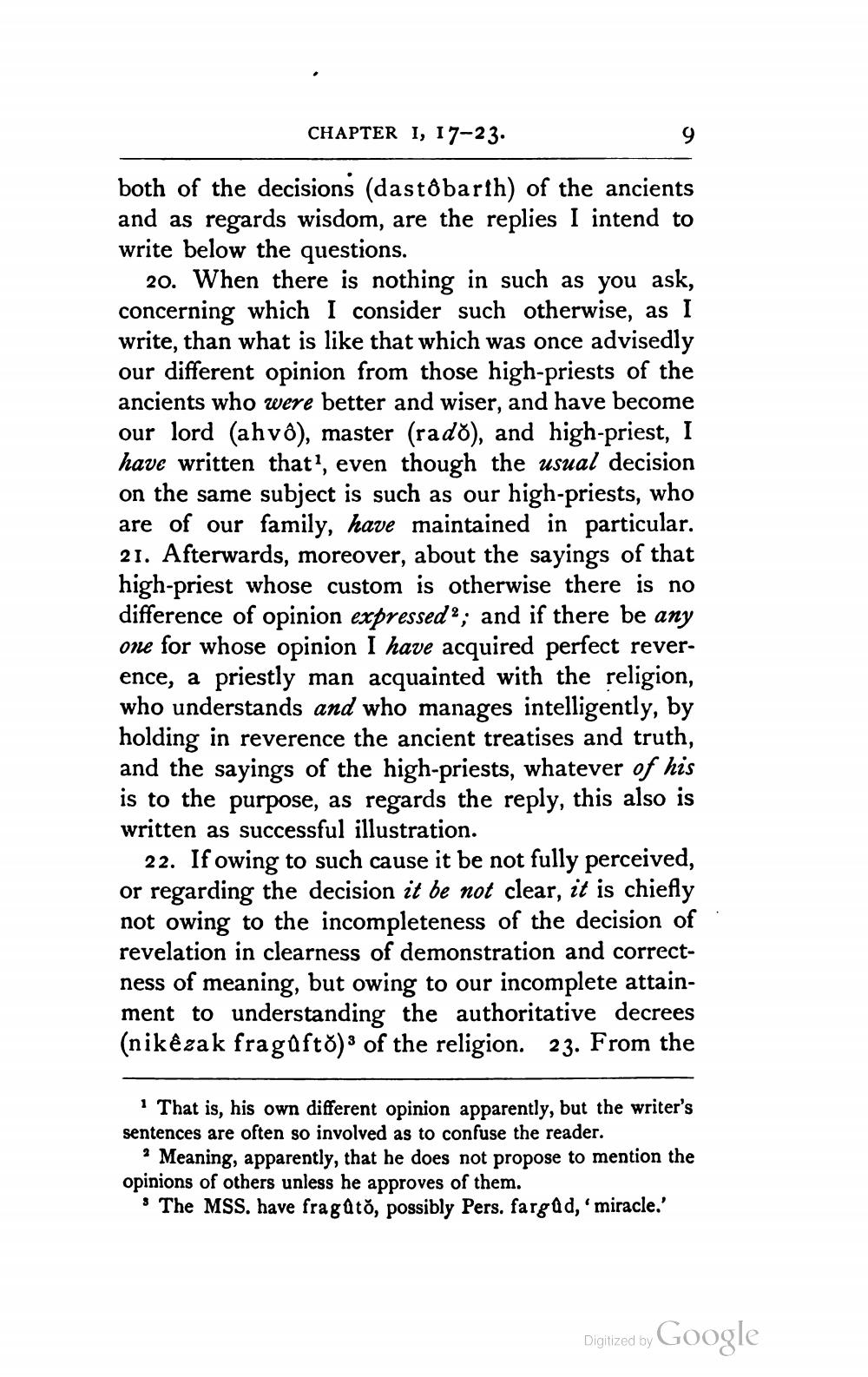________________
CHAPTER I, 17-23.
both of the decisions (dastóbarth) of the ancients and as regards wisdom, are the replies I intend to write below the questions.
20. When there is nothing in such as you ask, concerning which I consider such otherwise, as I write, than what is like that which was once advisedly our different opinion from those high-priests of the ancients who were better and wiser, and have become our lord (ahvô), master (rado), and high-priest, I have written that?, even though the usual decision on the same subject is such as our high-priests, who are of our family, have maintained in particular. 21. Afterwards, moreover, about the sayings of that high-priest whose custom is otherwise there is no difference of opinion expressed?; and if there be any one for whose opinion I have acquired perfect reverence, a priestly man acquainted with the religion, who understands and who manages intelligently, by holding in reverence the ancient treatises and truth, and the sayings of the high-priests, whatever of his is to the purpose, as regards the reply, this also is written as successful illustration.
22. If owing to such cause it be not fully perceived, or regarding the decision it be not clear, it is chiefly not owing to the incompleteness of the decision of revelation in clearness of demonstration and correctness of meaning, but owing to our incomplete attainment to understanding the authoritative decrees (nikêzak fragusto): of the religion. 23. From the
That is, his own different opinion apparently, but the writer's sentences are often so involved as to confuse the reader.
· Meaning, apparently, that he does not propose to mention the opinions of others unless he approves of them.
* The MSS. have fragato, possibly Pers. fargad, 'miracle.'
Digitized by Google




